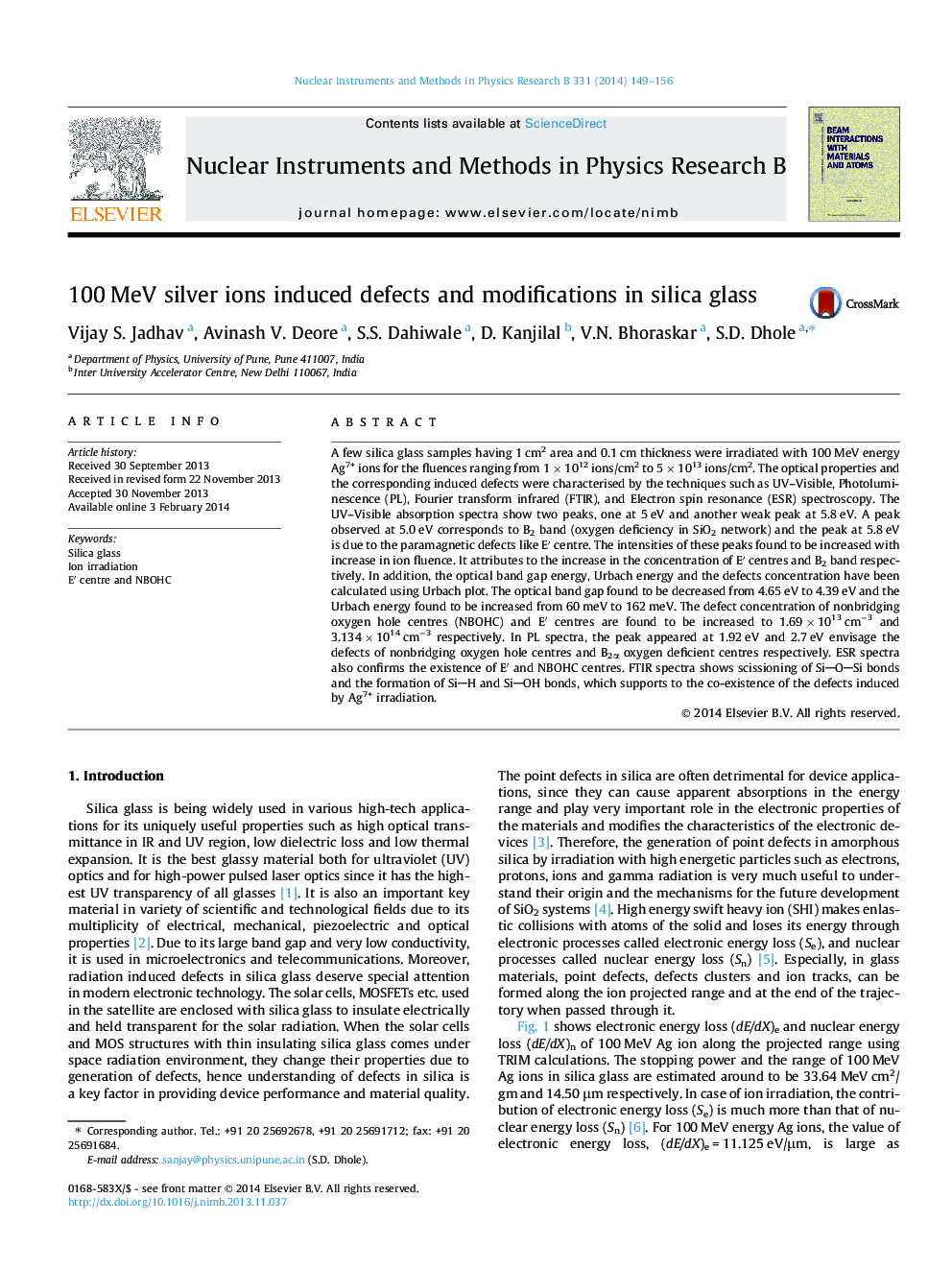| Article ID | Journal | Published Year | Pages | File Type |
|---|---|---|---|---|
| 1681147 | Nuclear Instruments and Methods in Physics Research Section B: Beam Interactions with Materials and Atoms | 2014 | 8 Pages |
Abstract
A few silica glass samples having 1 cm2 area and 0.1 cm thickness were irradiated with 100 MeV energy Ag7+ ions for the fluences ranging from 1 Ã 1012 ions/cm2 to 5 Ã 1013 ions/cm2. The optical properties and the corresponding induced defects were characterised by the techniques such as UV-Visible, Photoluminescence (PL), Fourier transform infrared (FTIR), and Electron spin resonance (ESR) spectroscopy. The UV-Visible absorption spectra show two peaks, one at 5 eV and another weak peak at 5.8 eV. A peak observed at 5.0 eV corresponds to B2 band (oxygen deficiency in SiO2 network) and the peak at 5.8 eV is due to the paramagnetic defects like Eâ² centre. The intensities of these peaks found to be increased with increase in ion fluence. It attributes to the increase in the concentration of Eâ² centres and B2 band respectively. In addition, the optical band gap energy, Urbach energy and the defects concentration have been calculated using Urbach plot. The optical band gap found to be decreased from 4.65 eV to 4.39 eV and the Urbach energy found to be increased from 60 meV to 162 meV. The defect concentration of nonbridging oxygen hole centres (NBOHC) and Eâ² centres are found to be increased to 1.69 Ã 1013 cmâ3 and 3.134 Ã 1014 cmâ3 respectively. In PL spectra, the peak appeared at 1.92 eV and 2.7 eV envisage the defects of nonbridging oxygen hole centres and B2α oxygen deficient centres respectively. ESR spectra also confirms the existence of Eâ² and NBOHC centres. FTIR spectra shows scissioning of SiOSi bonds and the formation of SiH and SiOH bonds, which supports to the co-existence of the defects induced by Ag7+ irradiation.
Keywords
Related Topics
Physical Sciences and Engineering
Materials Science
Surfaces, Coatings and Films
Authors
Vijay S. Jadhav, Avinash V. Deore, S.S. Dahiwale, D. Kanjilal, V.N. Bhoraskar, S.D. Dhole,
